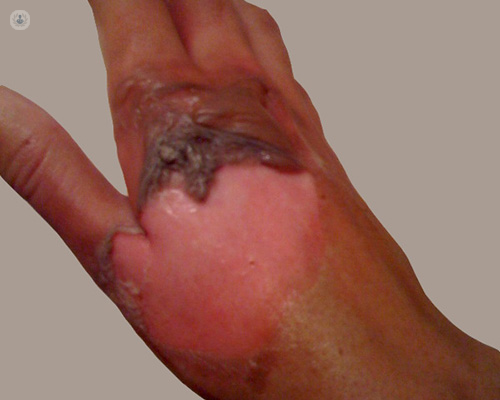


What is physiotherapy in burn patients?
Physiotherapy is frequently recommended for burn patients – particularly those whose burns cover a wide area of the body or the area around a joint. It is an essential part of the recovery process to maintain the ability to move, since burns cause the skin to tighten. Rehabilitation begins immediately and incorporates physical, psychological and emotional aspects – taking steps to help heal physically is empowering and helps the patient deal with the emotional and psychological side of their injury. Physiotherapy may be required for months or even years after the incident.
Why is it done?
Burns can be debilitating injuries, both physically and psychologically. They cause tightening of the skin and the development of scar tissue, which can limit movement, particularly if the burn affects a large area or the area around a joint.
Physiotherapy can help to combat these adverse effects, maintaining the range of motion in the patient’s joints, preserving muscle tone, minimising the development of keloids, hypertrophic scars, and skin contracture, and giving the patient a sense of empowerment and support to help overcome the psychological effects of suffering burns.
What does physiotherapy in burn patients consist of?
Physiotherapy for burns includes a number of techniques to help reduce pain and recover function in the affected area. It can involve:
- Skin lubrication – burnt and scarred skin is in danger of cracking if placed under too much strain. Lubrication with moisturisers prescribed by the physiotherapist can help to keep the skin hydrated and flexible.
- Compression therapy – in the case of severe burns, raised scars full of collagen fibres can develop (keloids and hypertrophic scars). These can be itchy or painful and limit movement. Compression therapy using tight bandages can help prevent them from forming.
- Splinting – helps to prevent skin contracture and helps keep certain body parts still while performing exercises.
- Scar massage – gently massaging burn scars with lotion or lubricant may ease pain.
- Muscle strength exercises
- Functional exercises
This recovery treatment should always be done with the help and supervision of a licensed physiotherapy professional.
